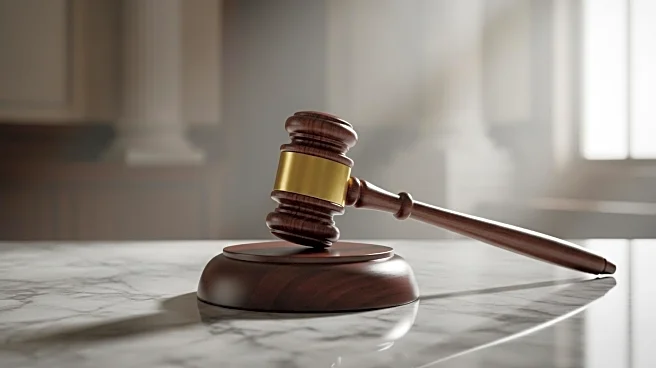What's Happening?
Former FBI Director James Comey has entered a plea of not guilty to charges related to his 2020 testimony before Congress. The charges, which include lying to Congress and obstructing a congressional investigation, were brought against him following an indictment by a federal grand jury. The proceedings took place in Alexandria, Virginia, nearly two weeks after the indictment was announced. The charges stem from Comey's testimony before a Senate panel in September 2020, where he is accused of providing false information and hindering the investigation process.
Why It's Important?
The case against James Comey is significant as it involves a high-profile former government official and raises questions about accountability and transparency in government proceedings. The outcome of this case could have implications for how congressional testimonies are conducted and the legal responsibilities of those who testify. It also highlights the ongoing scrutiny of actions taken by officials during the Trump administration, potentially affecting public trust in government institutions and the legal system.
What's Next?
As the legal proceedings continue, the case will likely draw attention from political leaders, legal experts, and the public. The trial's outcome could influence future congressional investigations and testimonies, setting precedents for how such cases are handled. Stakeholders, including political figures and legal analysts, will be closely monitoring the developments, which could lead to broader discussions on legal reforms and the integrity of governmental processes.










